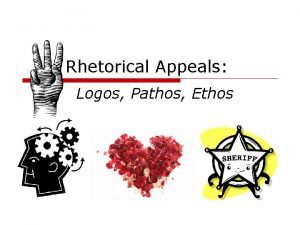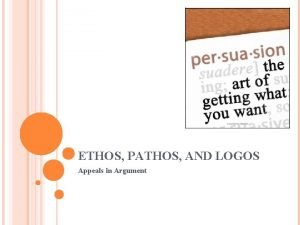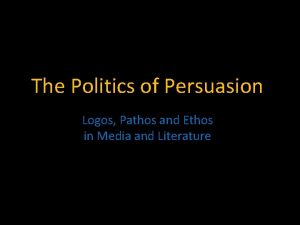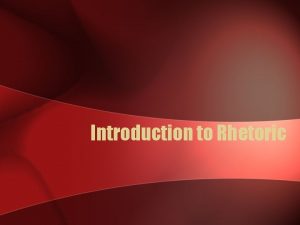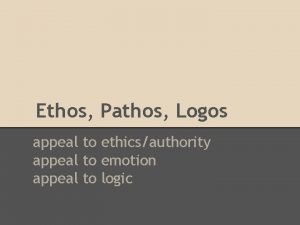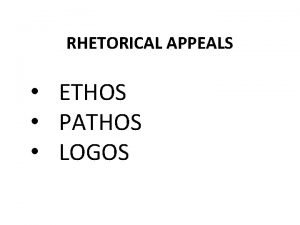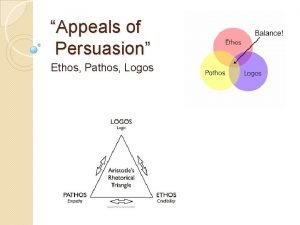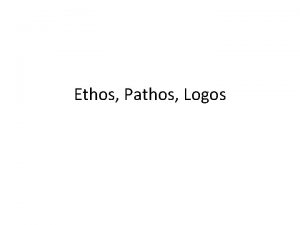RHETORICAL APPEALS Logos Pathos Ethos LOGOS Appeal to








- Slides: 8

RHETORICAL APPEALS Logos, Pathos, Ethos

LOGOS Appeal to Logic "Logic is the anatomy of thought. " – John Locke

LOGOS Logos is the consistency and clarity of an argument as well as the logic of evidence and reasons. You may want to think of logos as "logic, " because something that is logical "makes sense"—it is reasonable. Statistics Causal statements (if…then) Relevant examples or other evidence EXAMPLE: http: //www. youtube. com/watch? v=8 CP 7 cr. P 2 Fn. I What evidence does the writer provide that convinces me that his or her argument is logical—that it makes sense? What proof is the author offering me?

ETHOS Appeal to Credibility

ETHOS Ethos is a method of persuasion in which the EXAMPLE: speaker or writer (the "rhetor") attempts to http: //www. youtube. com/watch? v=8 ULR 68 L persuade the audience by demonstrating his own Tmbw credibility or authority. Why should I (the reader) read what the writer You may want to think of ethos as related to has written? "ethics, " or the moral principles of the writer: How does the author cite that he or she has ethos is the author's way of establishing trust something valid and with his or her reader. important for me to read? References to work experience Does the author mention his or her education References to college degrees, awards or professional Supporting sources written by authorities on subject experience, or convince me that he or she is a References to symbols that represent authority valid, educated, and experienced source?

PATHOS Appeal to Emotion "Let's not forget that the little emotions are the great captains of our lives, and we obey them without realizing it. " – Vincent Van Gogh

PATHOS Emotion, or "pathos, " is a rhetorical device that can be used in an argument to draw the audience in and to help it connect with the argument. Pathos evokes an emotional response from a reader by appealing to empathy, fear, humor, or some other emotion. Used correctly, pathos can make a bland argument come alive for the audience. Pathos offers a way for the audience to relate to the subject through commonly held emotions. EXAMPLE: http: //www. youtube. com/watc h? v=ERRl. DEo. HG 9 Y

PATHOS. As a reader, you want to be in tune with the author's use of pathos, consciously evaluating the emotions the author tries to elicit. Then you can make informed decisions about the author's motives and writing methods. Anecdotes Humor Direct Quotations Images How is the writer trying to make me feel, or what has he or she written that makes me want to do something? What specific parts of the author's writing make me feel happy, sad, inspired, dejected, and so on?
